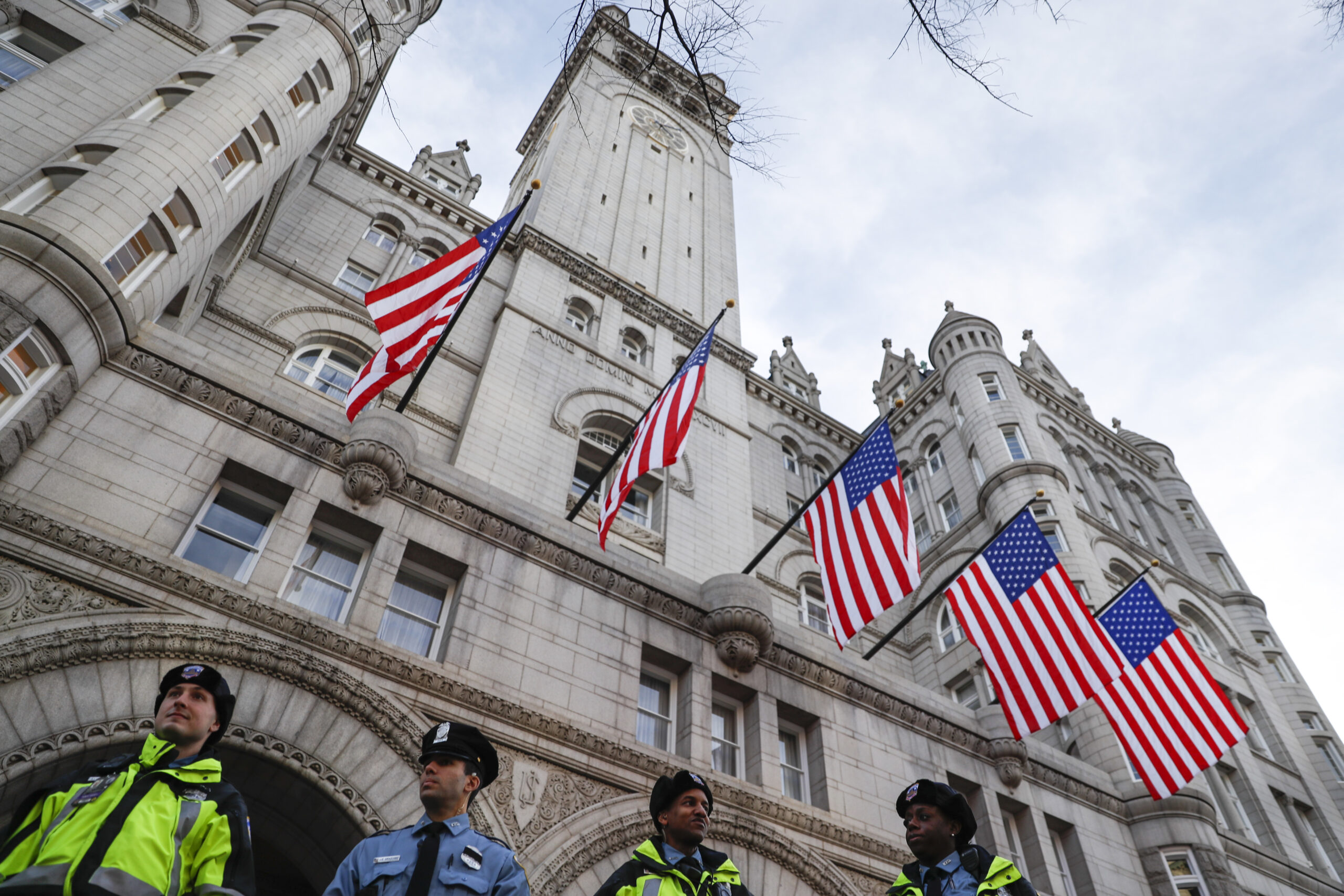President Donald Trump is being sued by contractors who claim that he stiffed them for work they performed at the Trump International Hotel in Washington DC during last year’s presidential election.
The lawsuit, which was filed last week by the Maryland company AES Electrical (also known as Freestate Electrical), claims that Trump forced them to “accelerate work” so that his hotel would be ready for a campaign event and a “soft opening” in September. As a result, AES Electrical claims its employees had to put in seven-day work weeks with 10-to-14 hour shifts for roughly seven weeks. They also claim to have been required to put in a comparable amount of labor to prepare the hotel for its Oct. 26 grand opening.
AES Electrical claims that Trump still owes them $2,075,731.61 for their extra labor (they have been paid $15,130,267.39 so far).
A spokesperson for the Trump Organization told NBC News that “in developments of this scale and complexity the filing of nominal liens at the conclusion of construction is not uncommon as part of the close out process. In the case of Trump International Hotel, Washington D.C., the Trump Organization has invested over $200 million dollars into the redevelopment of the historic Old Post Office and is incredibly proud of what is now considered to be one the most iconic hotels anywhere in the country.”
This lawsuit is one of more than 3,500 that have been filed against Trump and his companies for stiffing his workers in more than 30 years. Trump’s history of allegedly stiffing his laborers became a major issue in the 2016 presidential election, particularly an incident in 1980 in which he allegedly stiffed undocumented Polish immigrants that he had contracted. Hillary Clinton drew attention to this during one of her debates with Trump in September.
“I’ve met dishwashers, painters, architects, glass installers, marble installers, drapery installers ― like my dad was ― whom you refused to pay when they finished the work that you asked them to do,” Clinton told Trump. When he responded that his behavior was acceptable because he had been “unsatisfied” with their work, Clinton replied that the people he had stiffed “deserve some kind of an apology from someone who has taken labor, taken the goods they produced, then refused to pay them.”


